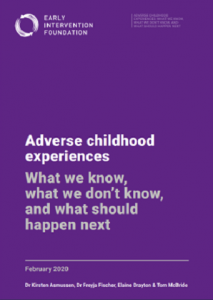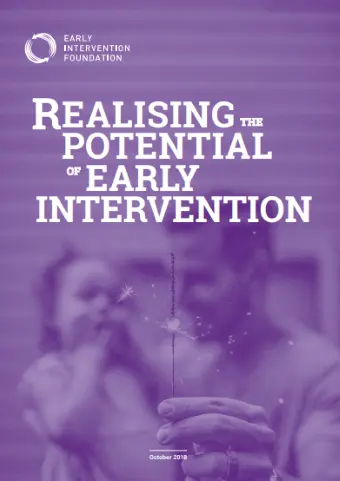Yesterday, the iHV submitted its policy proposals to the government’s Spending Review making the case for rebuilding health visiting services in England. The Spending Review provides an important opportunity for professional bodies to influence government spending over the next three years. The government has stated that they will use the Spending Review to change the way public services are delivered by embedding a mission-led approach, driving forward public service reform and making the best use of technology to better deliver services.
Our response brings together the collective voice of health visitors captured in our annual survey and the wider work of the Institute, outlining the poor state of child health and rising levels of need experienced by babies, children and families that cannot be ignored any longer. We are delighted that our call for investment in health visiting has attracted widespread support from across the child health and early years sector – the message is clear, we need more health visitors!
To improve our nation’s health and reduce pressure on NHS services, much greater attention needs to be given to prevention, early identification of health needs, and early intervention in the critical earliest years of life. Health visitors have a vital role to play as part of the “health” workforce, contributing to multiple clinical pathways through pregnancy, the perinatal period, and 0-5 years (for babies, children and adults).
It is therefore vital that the “broken” state of health visiting is addressed, alongside the NHS, with action to reverse the loss of more than 40% of health visitors since 2015. The cuts to health visiting services have been a false economy, impacting on families’ quality of healthcare and placing additional burdens and costs on other parts of the healthcare system.
Our request aligns with the government’s objectives to prevent ill-health by improving child health, and reform health visiting to reduce spiralling costs of late intervention. Our brief summary sets out our policy proposal:
- To address the loss of more than 40% of health visitors (HVs) since 2015 and ensure all families receive support in line with the Healthy Child Programme, ring-fenced funding is needed for 1,000 extra HV posts each year for the next 3 years.
- To reform health visitor services and support workforce retention, salary uplift funding is needed for 689 specialist HV posts (providing clinical leadership for government priorities, like perinatal mental health, immunisations and SEND).
Benefits and policy rationale
More health visitors are needed to deliver the government’s ambitions for prevention and early intervention (across health, education and social care), including reducing children’s A&E attendance and improving immunisation uptake, the quality of postnatal care, and early identification and support for “school readiness” and SEND.
Deliverability of proposals: It is far easier to rebuild and reform a tried and tested service like health visiting than invent a new preventative health workforce, with all the regulatory and training infrastructure needed for quality assurance and to protect the public. We welcome the government’s commitment to “reform health visiting”. This will require actions to improve workforce capacity, recruitment and retention.
Costs:
- Costs of 1,000 more health visitor posts are £52.9m for year 1, £105.8m for year 2, and £158.7m for year 3.
- Salary uplift costs for 689 specialist HV posts are £8.64m per annum (from band 6 to band 7).
We submitted our brief policy summary online on 10 September, alongside our supporting information and costings – available here.




